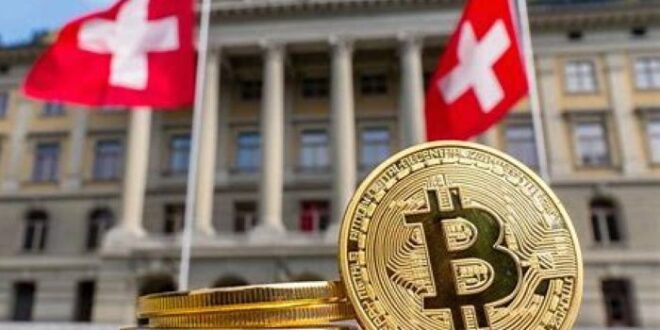In a groundbreaking turn of events, a new proposal has surfaced in Switzerland aiming to mandate the Swiss National Bank (SNB) to include Bitcoin as part of its official reserves. If approved, this initiative could position Switzerland as a global leader in integrating cryptocurrency into traditional financial systems.
The Proposal at a Glance
The proposal, spearheaded by pro-crypto lawmakers, seeks to diversify the SNB’s reserve portfolio by incorporating Bitcoin. Advocates argue that Bitcoin’s decentralized nature and limited supply make it an ideal hedge against economic uncertainties and inflation.
Key points of the proposal include:
- Mandating the SNB to allocate a percentage of its reserves to Bitcoin.
- Regular assessments of Bitcoin’s performance in the reserve portfolio.
- Leveraging Switzerland’s robust regulatory framework to ensure secure management.
Why Bitcoin?
- Decentralized Hedge
Bitcoin’s independence from centralized monetary policies offers a safeguard against global financial instability. - Inflation Resistance
With a capped supply of 21 million coins, Bitcoin presents an alternative to fiat currencies susceptible to inflation. - Tech-Forward Reputation
As a hub for blockchain innovation, Switzerland’s adoption of Bitcoin in its reserves would solidify its position as a global crypto leader.
Supporters vs. Skeptics
The proposal has sparked a lively debate:
- Supporters highlight the potential for Bitcoin to future-proof Switzerland’s financial stability while aligning with its innovative image.
- Skeptics warn of Bitcoin’s price volatility and the risks associated with integrating a relatively young asset class into national reserves.
Regulatory Framework and Implementation
Switzerland’s progressive approach to crypto regulation provides a solid foundation for the proposal. The SNB could collaborate with local blockchain firms to develop secure custody solutions and risk management strategies.
Global Implications
If Switzerland proceeds with this initiative, it would become the first major economy to hold Bitcoin as a reserve asset. This move could inspire other central banks to explore cryptocurrency as part of their monetary strategies, potentially accelerating global adoption.
The Road Ahead
The proposal must undergo parliamentary scrutiny and a public vote, a hallmark of Switzerland’s direct democracy. While the outcome remains uncertain, the debate underscores the growing recognition of Bitcoin as a viable asset in the financial ecosystem.
A Pioneering Shift
Switzerland has long been a leader in banking and finance. By integrating Bitcoin into its national reserves, the country could redefine its financial legacy while setting a precedent for the future of global monetary policy.
 Business Sandesh Indian Newspaper | Articles | Opinion Pieces | Research Studies | Findings & News | Sandesh News
Business Sandesh Indian Newspaper | Articles | Opinion Pieces | Research Studies | Findings & News | Sandesh News



